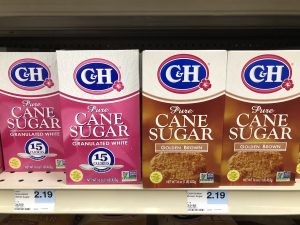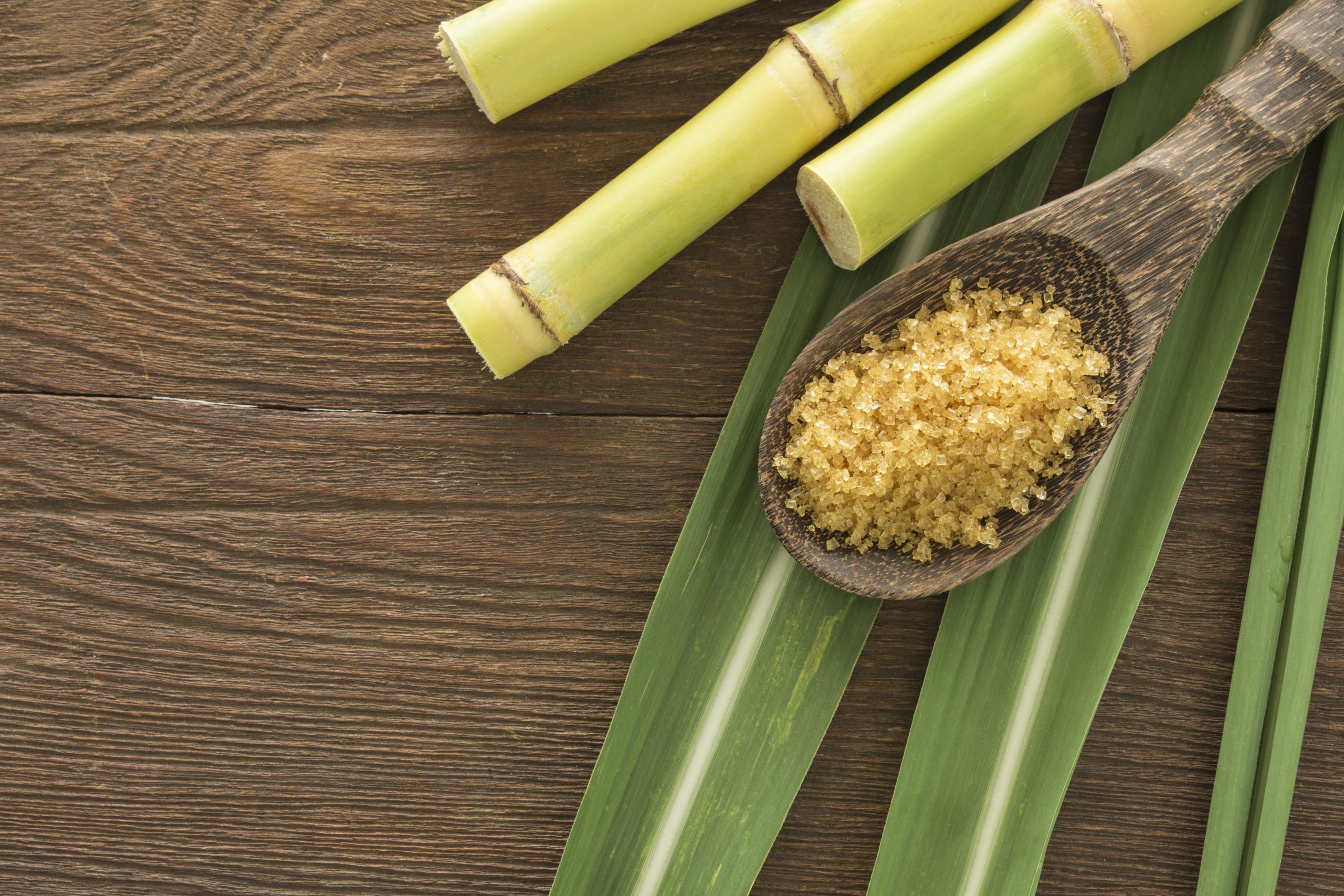In response to the introduction of GMO sugarcane, Raízen and ASR Group join forces to provide certified non-GMO cane sugar options to the marketplace
When genetically modified soybeans and corn were introduced in the late 1990s, grain suppliers created supply chains to provide non-GMO alternatives of the two crops for customers who preferred non-GMO options. Now that is happening with cane sugar. Raízen, the world’s largest sugar exporting company, and ASR Group, a leading refiner and marketer of cane sugar, recently announced their partnership to create a sustainable, fully traceable, and non-GMO certified raw cane sugar supply chain. The initiative aims to ensure a reliable supply of non-GMO cane sugar for processors and consumers worldwide.
The partnership stretches from Raízen’s sustainably certified sugarcane farms and bioenergy parks in center-south Brazil to supporting the brands that make up ASR Group’s cane sugar consumer products in North America and Europe.
Both companies are major players in sugarcane processing. Raízen produces ethanol, biogas, bioelectricit,y and solar energy. The company, which has 40,000 employees, has a sugarcane crushing capacity of up to 105 million tons. ASR Group is
the world’s largest refiner and marketer of cane sugar, with an annual production capacity of more than 6 million tons of sugar. The company’s brands include Domino®, C&H®, Florida Crystals®, Redpath®, Tate & Lyle®, Lyle’s®, and Sidul®.
Marks new chapter in global sugar traceability
According to Alan Wood, ASR Group’s senior vice president of global sugars, the two companies have had a working relationship for many years, and the non-GMO cane sugar partnership with Raízen is a “natural fit.”
“Raízen and ASR have really similar DNA around sustainability, the carbon footprint, and the future of sugarcane which is such an important crop,” he says.
“When we connected with Alan and his team it was a natural fit, and we started to work together to develop this value chain, which is quite unique and extraordinary,” says Paulo Neves, vice president of trading at Raízen.
The non-GMO cane sugar supply chain is large scale. Raízen has developed a closed-loop system to supply the sugarcane starting from the farms to 15 dedicated mills where it is processed to an inland terminal and then to a dedicated port facility at the Port of Paranaguá in Paraná State, Brazil.
The entire supply chain is traceable and certified non-GMO by FoodChain Global Advisors, a leading certification firm.
In addition to carrying non-GMO status, the raw cane sugar is certified according to the standards of Bonsucro, the leading global sustainability platform and standard for sugarcane.
ASR Group has agreed to buy 1.2 million tons of non-GMO raw cane sugar from Raízen over the next 10 years.
During the first year of the partnership, ASR Group’s cane sugar refineries in Canada, the United Kingdom, Portugal, and Italy will receive deliveries as part of the supply chains of ASR Group’s sugar brands, including Redpath, Tate & Lyle, Lyle’s, and Sidul.
“This partnership marks a new chapter in global sugar traceability,” Neves says. “This initiative enables us to measure the full impact and footprint reduction in our supply chain more accurately. This certification enables us to confirm, through a third-party audit, the absence of GMO sugarcane in our entire process, increasing the value of the product to customers who seek this type of sugar.”
“In my mind, you cannot get a better supply chain from the farm to our sugar refineries,” Wood says.
ASR will pay a premium for the raw cane sugar, and this will be re-invested by Raízen to further both companies’ ESG (environmental, social, and governance) targets. This will include projects looking at improving land productivity, reducing greenhouse gas emissions through operational efficiency and innovation, increasing water circularity, and other sustainability initiatives.
“Non-GMO is what the world is demanding”
The non-GMO cane sugar supply chain has been established in response to the commercialization of genetically modified sugarcane in Brazil. The GMO sugarcane, developed by Centro de Tecnologia Canavieira, is genetically engineered with the Bt gene to resist the cane borer insect, which is responsible for $1.5 billion in annual losses to Brazil’s sugarcane producers.
The first harvest of the GMO sugarcane crop was in 2021. Earlier this year, Brazil announced plans to double GMO sugarcane acreage to 173,000 acres in the 2022/23 crop cycle, up from 91,400 acres last year. Despite the increase in acreage, GMO sugarcane will only account for about 2% of Brazil’s total sugarcane acreage of 9 million acres.
Brazil is the world’s largest sugarcane growing country, producing more than 650 million metric tons of sugarcane and supplying 50% of the world’s sugar.
Sugarcane accounts for 80% of the world’s sugar supply with the other 20% coming from sugar beets. GMO sugar beets dominate U.S. production—95% of all sugar beets now grown in the U.S. are GMO.

ASR Group sugar brand C&H is Non-GMO Project Verified
Consumers worldwide continue to express concerns about the safety of genetically modified foods, creating a strong demand for non-GMO foods. In the U.S., sales of Non-GMO Project Verified products have topped $40 billion with 65,000 products verified non-GMO. Consumers in Germany spent 13.2 billion euros ($13.6 billion) on non-GMO or “Ohne Gentechnik” foods in 2021.
Wood says his company is strictly non-GMO and that GMOs are a “red line” for consumers in Europe.
“Non-GMO is really what the world is demanding,” he says. When I say the world, I mean the people we sell our sugars to, the likes of Coca-Cola and Nestle and all of these big players.”
ASR Group sugar brands Domino, C&H, Florida Crystals, and Redpath are all Non-GMO Project Verified.
The Non-GMO Project sees the non-GMO sugar supply chain as a major step to protect non-GMO options.
“ASR Group seems to recognize that the future is non-GMO, and we welcome Raízen’s contributions to this new chapter in sustainable food production and distribution,” says Hans Eisenbeis, Non-GMO Project’s director of mission and messaging. “We hope this will influence all cane growers, processors, and brands to keep GMO sugarcane out of non-GMO supply networks.”
Wood and Neves say the supply chain is not restricted to the two companies. They welcome other suppliers to source their non-GMO sugar.
“We hope other companies will see the advantages of what we have done and join us. It would be great for the market,” Wood says.





